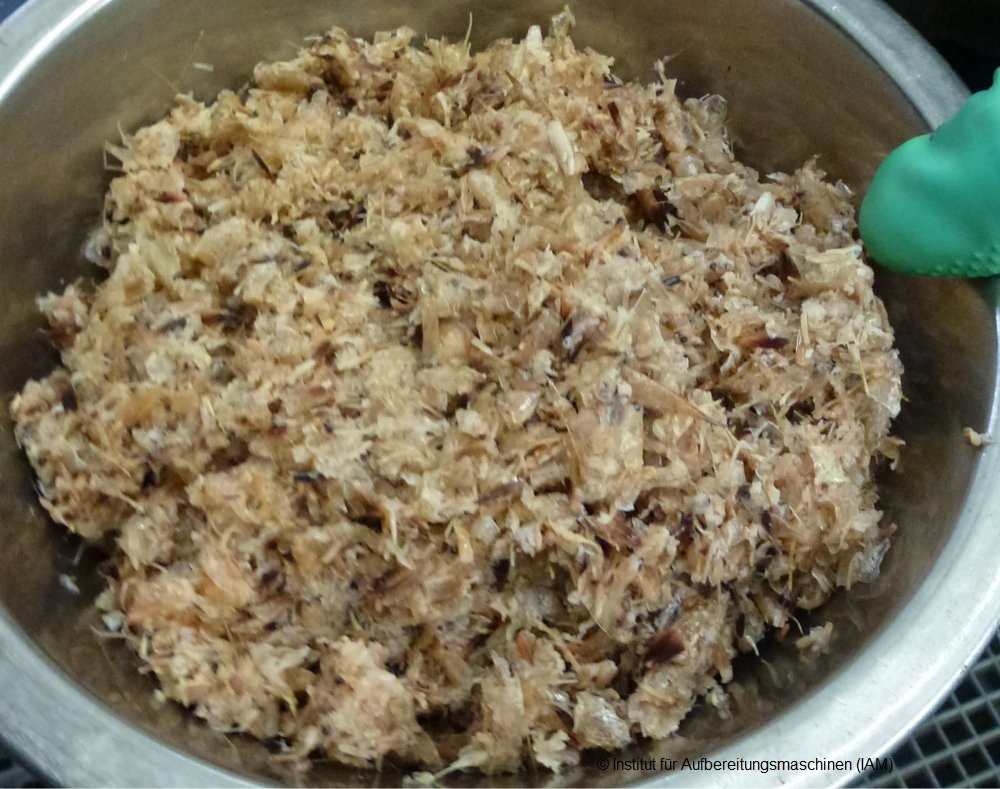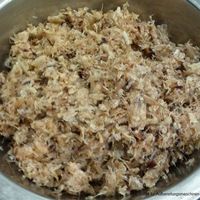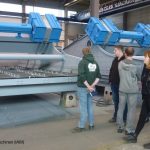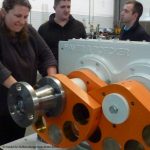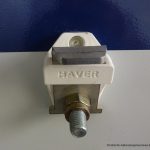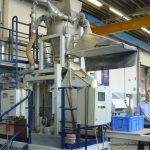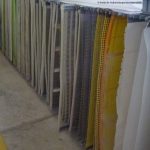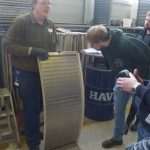First stop: Thyssenkrupp Industrial Solutions AG in Beckum
Today, we started the second day of our field trip of the Institute of Mineral Processing Machines at the Thyssenkrupp Industrial Solutions AG in Beckum. On-site, we received a brief introduction into the company’s R&D department for mineral processing by its head, Dr.-Ing. Falk Silbermann. He then reported on a new process, the so-called torrefaction, to roast biomass and biogenic waste – similar to the production of coffee – to make biochar by means of an energy self-sufficient process. To this end, wood pellets, straw and manufacturing waste (for instance from sugar production), green waste or organic waste, among other things, can be used.
During our tour of the R&D department’s technical center, we then learned how to test new raw materials for cement production on a pilot scale to ensure that the subsequently built aggregates and equipment perform perfectly for each and every customer in their respective application.
Afterwards, the eccentric roller crusher was introduced to us – a newly developed crusher with integrated pre-screening and a very flat and robust construction, which makes a high throughput rate of up to 3,000 tons per hour possible. With these properties, this roller crusher is particularly suitable for the effective primary crushing of hard rock and ores – both below ground and in surface operations as the centerpiece of a mobile or semi-mobile system.
But how are the huge mills and crushers built that have previously been designed in the firm’s R&D center? This was dedicatedly explained to us by the master machining technician in the nearby workshop, where 120 production workers are employed. It goes without saying that the making of a large crushing plant does not happen overnight – in fact, it takes about a full year! The numerous work steps that have to be carried out accrue about 4 tons of metal chips daily! The largest production machine actually comes from Chemnitz.
Next stop: HAVER NIAGARA GmbH in Münster
After enjoying some lunch in the canteen, we made our way over to the HAVER NIAGARA GmbH – our second stop of the day. The company location in Münster is part of the engineering division of the HAVER & BOECKER OHG and specializes in processing technologies.
After arriving there, we were welcomed by the managing director Peter Grotjohann. He gave us an insight into the company over coffee and biscuits. About 70 employees work at the Münster site. The complete machine planning was restructured last year to assign the respective competencies to the different locations of HAVER & BOECKER’s engineering division. In the numerous lectures that were given to us it was repeatedly mentioned that graduates of the TU Bergakademie Freiberg are involved in the company’s various projects worldwide.
As was the case in Beckum, the introduction was followed by a tour of the plant, where we were shown the complete manufacturing process, starting with the semi-finished product and ending with the finished machine. Up to a width of 4 m, these machines are still allowed to be transported in one piece within Germany.
The screening machines manufactured by the HAVER NIAGARA GmbH are made-to-order items, as each material to be screened does have its own unique processing requirements. For instance, some materials are very moist and therefore quite sticky, whereas others are very abrasive. To design these machines, tests are carried out in the company’s own technical center. There are about 300 different screen coverings available for sample screenings.
And, at the end of today’s tour, we were actually given the chance to witness a screening test carried out for us in the aforementioned in-house technical center. Furthermore, we could follow washing tests that were conducted on the firm’s innovative Hydro-Clean high-pressure washing system. Usually, it is used to free minerals of impurities, e.g. gypsum rock from clay caking. Today, however, we were struck by a pinch of sea air in the middle of the Münster region, as there were experiments done with shrimp shells. At high water pressure of 80 bar, these shells were meant to be cleaned of preservatives in order to supply them for further processing.
In the evening, we therefore preferred to rather not have shrimp soup, but instead enjoy some delicious beer from Radeberg. Saxony just never seems to be too far off 😉
